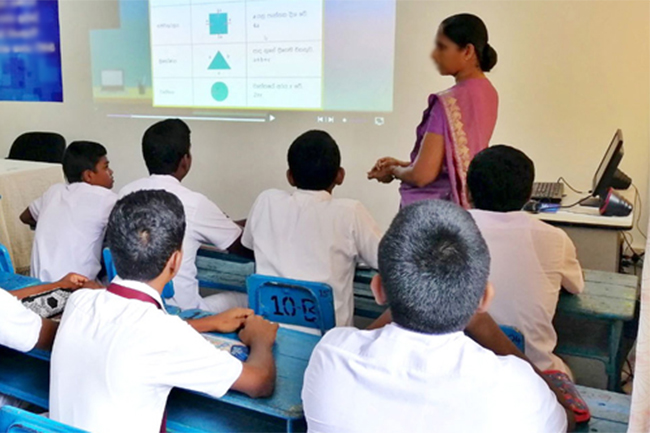Plans afoot to implement cluster education system by amalgamating multiple schools
March 8, 2024 10:40 pm
The “Presidential Scholarship” program proposed by President Ranil Wickremesinghe holds immense potential to provide crucial assistance to economically disadvantaged students, says State Minister for Education Aravindh Kumar.
This initiative is geared towards supporting 100,000 students during the 2024/2025 academic year, he added.
The state minister expressed confidence that this program would play a pivotal role in facilitating the successful completion of education for these students.
Moreover, Kumar emphasized plans to establish 20 Zonal Education Offices as part of ongoing education reforms. These offices are envisioned to play a pivotal role in implementing future educational initiatives and ensuring the efficient administration of educational policies.
He shared these views during the media briefing at the Presidential Media Centre (PMC) today.
He also unveiled the government’s intentions to implement a cluster education system by amalgamating multiple schools in a bid to further boost the quality of school education. Additionally, recruitment drives will be initiated to fill teacher and principal vacancies, ensuring adequate staffing and effective administration in schools.
State Minister for Education Arvindh Kumar further commented:
“The ‘Presidential Scholarship’ program proposed for 2024/2025 is a commendable initiative aimed at providing crucial support to economically disadvantaged school children to ensure the successful completion of their education.
Spearheaded by President Ranil Wickremesinghe, this program underscores our government’s commitment to addressing the economic challenges facing families and safeguarding children’s educational opportunities.
We firmly believe that financial constraints should not hinder talented students from pursuing their education.
Therefore, this scholarship program seeks to alleviate financial burdens and enable deserving students to continue their academic pursuits.
In addition to addressing financial barriers, the government is dedicated to implementing comprehensive education reforms. One significant reform entails advancing the General Certificate of Education Advanced Level exam to Grade 12, preceding Grade 13, and advancing the General Certificate of Education Ordinary Level exam, currently held in Grade 11, to Grade 10. This strategic move aims to expedite university entrance for students, enabling them to enter the workforce at a younger age upon graduation.
Furthermore, we are poised to introduce a “Pre-Grade” program before Grade One, recognizing the cognitive abilities of today’s children and their rapid learning potential. Moreover, as part of enhancing the education sector, we plan to increase the number of zonal education offices from around 100 to 120, facilitating better governance and oversight.
To further elevate the quality of school education, we intend to implement a cluster education system by amalgamating multiple schools. Additionally, recruitment drives will be initiated to fill teacher and principal vacancies, ensuring adequate staffing and effective administration in schools.
These comprehensive reforms underscore our unwavering commitment to nurturing a robust education system that empowers every child to realize their full potential and contribute meaningfully to society.”
--PMD












